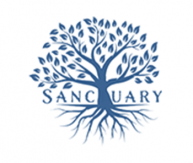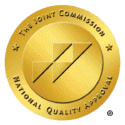
What Is a Substance Use Disorder?
When someone uses alcohol or various substances on a regular basis, their usage can turn into a substance use disorder (SUD). SUDs can range from mild to moderate (dependence) to severe (addiction). SUD not only impacts the person using the substance but also their family and friends. When someone is ready for help with their SUD, help is available to help them quit safely and learn how to lead an active and productive substance-free life.
What Is a Substance Use Disorder?
A substance use disorder is classified as a mental health disorder because of the effects substances have on the brain. When someone uses substances regularly, it forces the release of different neurotransmitters that flood the brain. The most common one is dopamine, a neurotransmitter that makes people feel good and can cause euphoria when an excessive amount is released.
Substance use disorders range from mild to moderate to severe. The longer someone uses substances, the more likely they are to progress from one end of the spectrum to the other. To be formally diagnosed with a SUD, one must exhibit at least 2 of the 11 criteria in the DSM-5, which determines the type of SUD one has:
- Mild SUD: 2-3 criteria symptoms
- Moderate SUD: 4-5 criteria symptoms
- Severe SUD: 6 or more criteria symptoms
What Are the Types of Substance Use Disorders?
Some of the more common types of SUDs are:
- Marijuana (cannabis) use disorder
- Tobacco use disorder
- Alcohol use disorder
- Opioid use disorder
- Cocaine use disorder
- Meth use disorder
- Heroin use disorder
- Benzodiazpine use disorder
- Stimulant use disorder
- Sedative use disorder
- Hallucinogenic use disorder
- Inhalant use disorder
Symptoms and Causes
Recognizing the signs of and causes of substance use disorders can help people determine when they should seek professional help. They can also help family and friends who are worried about their loved one.
What Are the Signs & Symptoms of Substance Use Disorder?
The symptoms of SUDs include the 11 criteria in the DSM-5:
- Experiencing withdrawal symptoms
- Inability to cut down or stop substance use, even when someone wants to
- Continuing to use substances, despite any negative impacts on relationships
- Taking larger amounts of substances or using them for longer periods to maintain their effects
- Taking larger amounts of substances to experience the desired effects, as tolerance builds
- Using substances repeatedly, despite any potential dangers
- Developing cravings for the substance
- Forgoing work, recreational, and social activities to use substances or because of their effects
- Spending an excessive amount of time obtaining, using, or recovering from substance use
- Neglecting personal responsibilities at home, school, or work
- Continuing to use substances even when they have caused physical and mental health issues that are worsening
Other signs and symptoms of SUDs will vary based on the substance, but could include:
- Changes in appetite or weight
- Insomnia or excessive sleeping
- Suspicious, secretive behaviors
- Mood swings
- Irritability
- Hyperactivity or lethargy
- Lack of personal hygiene
- Cognitive impairments
- Financial problems
- Relationship problems
- New circle of friends
- Isolation and withdrawal from family and friends
- Changes in physical appearance
- Engaging in risky behaviors
- Experiencing withdrawal symptoms when not using
- Possessing drug paraphernalia
- Loss of interest in hobbies and activities
What Causes Substance Use Disorder?
The precise cause of SUD can vary based on the individual and could be related to:
- Family history of substance use disorders or mental health disorders
- Easy access to substances
- Social (peer) pressure
- Experimentation with the effects of various substances
- Enhancing performance
- Using substances when a tween or teen
- Experiencing childhood trauma and neglect
- Experiencing a traumatic experience and using substances to cope
- Using substances for stress or anxiety release
- Having a mental health disorder and using substances to cope with symptoms
- Exposure to family conflict, violence, or abuse
- Seeing celebrities promoting substance use
Substance Use Disorder vs. Substance Use
People of use substance use disorder and substance use to mean the same thing. However, they do have different meanings. Substance use disorder is when someone meets at least 2 of the DSM-5 criteria and has a treatable mental health disorder. The most severe type of SUD is addiction.
Substance use, also known as substance misuse, is using a substance in a manner in which it was not meant to be used, such as crushing up tablets and snorting them or mixing them with water to inject them. Substance use can also mean using a substance to the extent that it could potentially cause harm to a person or those around them. For example, drinking alcohol, getting drunk, and then driving a car.
Substance Use Disorder: Complications
People with SUDs face different risks and complications from continued use, such as:
- Overdose
- Development of mental health disorders
- Infections and sexually transmitted diseases
- Blackouts and memory loss
- Cancer
- Kidney disease/kidney failure
- Heart disease
- Respiratory/long disease
- Elevated risk of stroke
- Liver damage/liver failure
- Seizures
- Brain damage
- Brain development impairments
How Is Substance Use Disorder Treated?
SUDs are treated using a combination of evidence-based and holistic therapeutic modalities as part of a comprehensive treatment program, which could include:
- Individual therapy
- Group therapy
- Family therapy
- CBT
- DBT
- EMDR therapy
- TMS therapy
- Trauma therapy
- Holistic therapies:
- Art therapy
- Music therapy
- Meditation and mindfulness therapy
- Nutritional counseling
These services are provided at different treatment care levels:
- Detox: Detox is the first step to overcoming SUDs and allows a person to receive round-the-clock care and medical supervision as the substance is removed from their body and they go through withdrawal.
- Inpatient rehab: Residential rehab is for individuals with severe SUD, those without a stable home environment, or those who could be a harm to themselves or others. IT provides highly structured and intensive care with 24/7 monitoring.
- Outpatient rehab: There are several different types of outpatient programs that allow people to receive treatment during the day, while returning home at night. These programs are ideal for people who can manage their symptoms outside treatment and who have a strong support network at home.
- Aftercare and alumni programs: Most people need ongoing support even after completing a rehab program. Aftercare treatment and alumni programs provide this support and help people to continue to develop their coping skills and reduce their risk of relapse.
Contact Sanctuary Treatment Center for Help Today
If you or a loved one has a substance use disorder, Sanctuary Treatment Center in Southern California provides comprehensive treatment plans tailored to your unique needs. Moreover, our caring and compassionate team is committed to supporting you every step of the way.
In addition, we provide a safe and nurturing environment where you can begin your recovery journey with confidence. Whether you’re seeking help for yourself or a loved one, we’re here to guide you.Contact us today to learn more about our treatment programs or to start the admissions process to begin your path to a brighter, substance-free future.
Published: 4/29/2025


